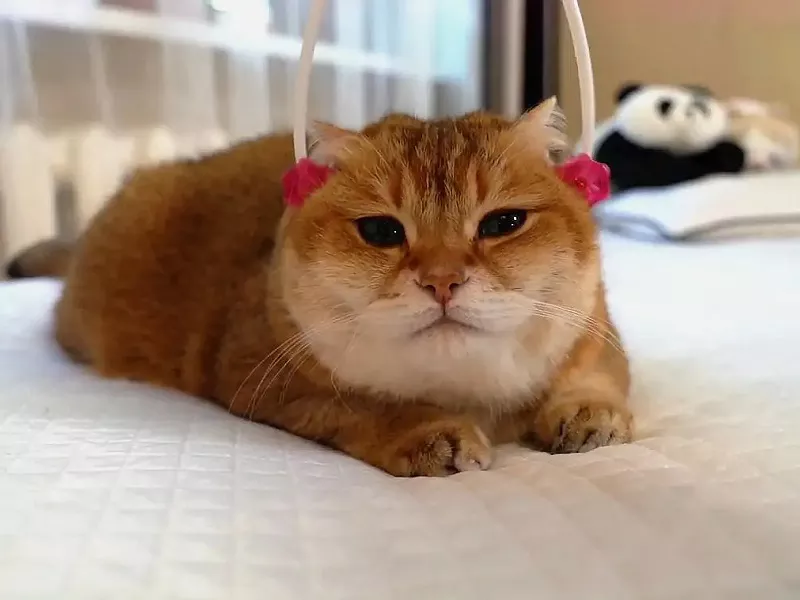The Balinese cat, known for its elegance and distinctive appearance, has captured the hearts of cat enthusiasts worldwide. With its silky coat and captivating blue eyes, the Balinese is often mistaken for a long-haired Siamese. As potential cat owners consider bringing a Balinese into their homes, a common question arises: What is the lifespan of a Balinese cat? In this article, we will explore the factors that influence the Balinese cat’s lifespan, tips for extending their years, and considerations for providing the best care to ensure a long and healthy life.
Understanding the Balinese Cat
The Balinese cat is a breed that shares its origins with the Siamese. Its name is derived from the graceful and fluid movements reminiscent of Balinese dancers. Like the Siamese, the Balinese cat is known for its sleek body, striking color points, and remarkable blue almond-shaped eyes. Despite its appearance, the Balinese has a single coat of hair that lies close to the body, creating a soft and silky texture.
Average Lifespan
On average, a well-cared-for Balinese cat can live between 12 to 16 years. However, it’s important to note that individual lifespans can vary based on factors such as genetics, diet, environment, and overall health. Some Balinese cats may live beyond the average range, while others might have shorter lifespans due to unforeseen health issues or genetic predispositions.
Factors Influencing Lifespan
Genetics: Genetics play a significant role in determining a Balinese cat’s lifespan. Responsible breeding practices and selecting cats from reputable breeders who prioritize health can positively impact longevity.
Healthcare: Providing regular veterinary care is crucial for monitoring the Balinese cat’s health and addressing any potential issues early. Routine check-ups, vaccinations, and dental care contribute to their overall well-being.
Diet and Nutrition: A balanced and nutritionally appropriate diet is essential for maintaining the Balinese cat’s health. High-quality cat food that meets their dietary needs can contribute to their longevity.
Exercise and Enrichment: Regular physical activity and mental stimulation are important for preventing obesity and promoting overall health. Engaging playtime and interactive toys keep them physically and mentally engaged.
Indoor Environment: Keeping the Balinese cat indoors protects them from potential dangers such as accidents, predators, and exposure to diseases. Indoor living can contribute to a longer and safer life.
Hygiene and Grooming: Regular grooming helps maintain the Balinese cat’s coat and prevents matting. Regular grooming sessions also provide an opportunity to check for any skin issues or abnormalities.
Social Interaction: Balinese cats are social animals that enjoy companionship. Interaction with their human family members and possibly other pets can contribute to their emotional well-being.
Tips for Extending Lifespan
Routine Veterinary Care: Schedule regular veterinary check-ups to monitor the Balinese cat’s health and catch any potential issues early.
Healthy Diet: Provide a balanced and appropriate diet to meet their nutritional needs. Consult your veterinarian for recommendations on feeding guidelines and dietary choices.
Preventive Care: Ensure that vaccinations, flea control, and deworming are up-to-date to prevent common health issues.
Weight Management: Prevent obesity by monitoring their weight and providing regular exercise. Obesity can lead to a range of health problems.
Hydration: Ensure access to clean and fresh water at all times to promote kidney health and overall hydration.
Oral Health: Regular dental care, such as brushing teeth or providing dental treats, contributes to overall health and prevents dental issues.
Stress Management: Create a calm and stress-free environment for your Balinese cat. Minimizing sources of stress can contribute to their well-being.
Conclusion
The lifespan of a Balinese cat is influenced by genetics, healthcare, diet, environment, and overall care. With proper attention to these factors and a commitment to providing the best possible care, it’s possible to extend the Balinese cat’s lifespan and enjoy their companionship for many years. As with any pet, understanding their unique needs, seeking regular veterinary care, and providing a loving and nurturing environment are essential for ensuring a long and fulfilling life for your Balinese feline friend.
Recommended reading:


























